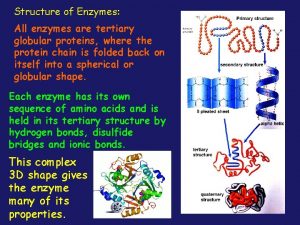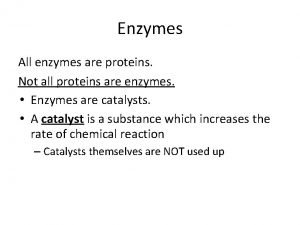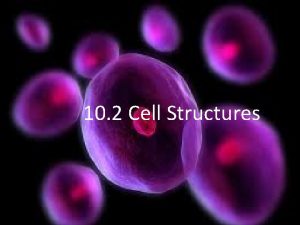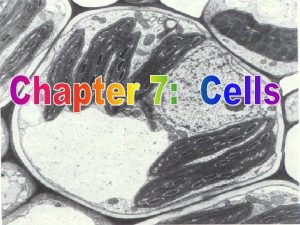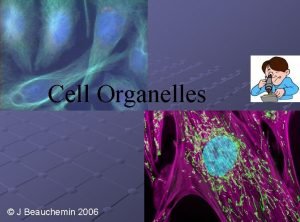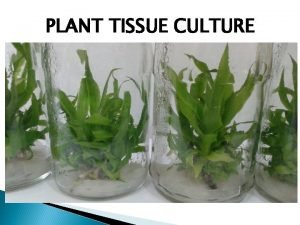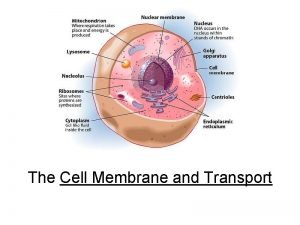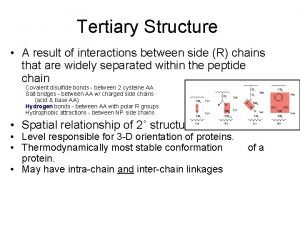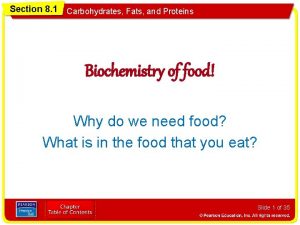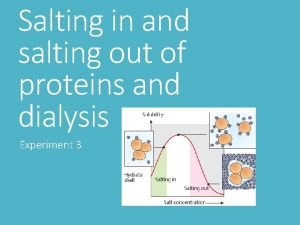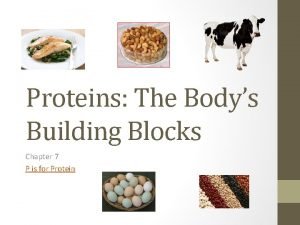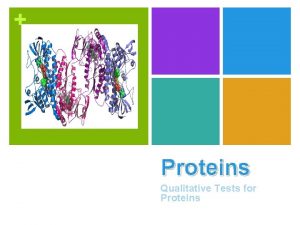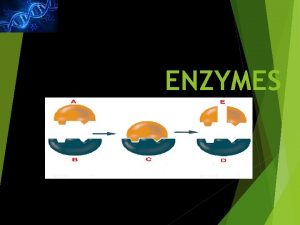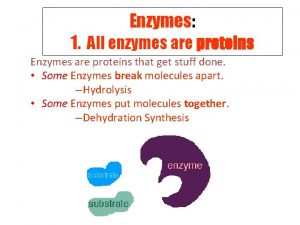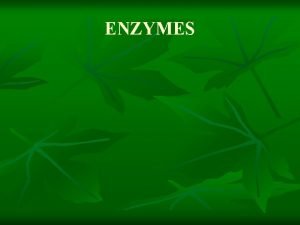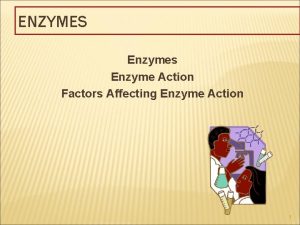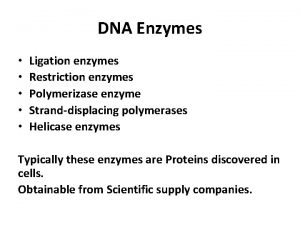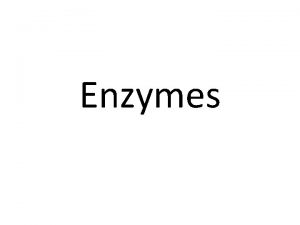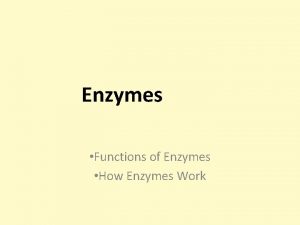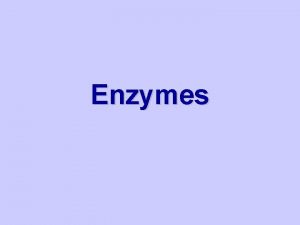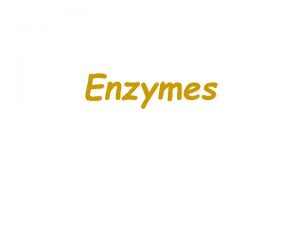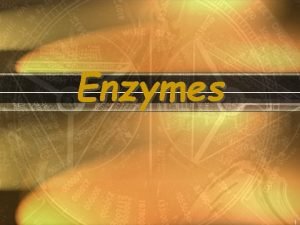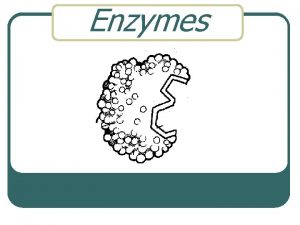What is an enzyme Enzymes are proteins which












- Slides: 12


What is an enzyme? ▫ Enzymes are proteins, which means they are organic. ▫ They are catalyst: used to accelerate a reaction.

Properties of enzymes: ▫ ▫ ▫ They are reusable! They are not changed in the process/reaction. End in –ase (Ex: Sucrase, Lactase, Maltase) Enzymes are specific for what they will catalyze. (Ex: lactase breaks down lactose)

Why do we need enzymes? ▫ Most chemical reactions occur very slow. ▫ Enzymes work by reducing or lowering the activation energy. This causes the reaction to occur faster. ▫ Activation energy is the energy needed to initially start a reaction.

Activation energy graph:

Enzyme reaction/structure:

Enzyme reaction/structure:

Enzyme reaction/structure: ▫ ▫ Substrate -The reactant that the enzyme will work on. Active Site -The region of an enzyme molecule which binds to the substrate. Enzyme/substrate complex -When the substrate bonds to the enzyme. Products -The final outcome of the reaction.

How do enzymes work? ▫ ▫ ▫ The enzyme and substrate are extremely specific. They are shaped to fit together like a “lock and key” at the active site. If they do not fit, there will be no reaction!

Factors the affect enzymes? Denature-An enzyme’s active site becomes misshapen, and the reaction cannot occur. Factors: 1. Extreme Temperature 2. p. H-most enzymes function at a specific p. H. 3. Salinity 4. Concentration (enzyme or substrate)


Factors the affect enzymes?
 Insidan region jh
Insidan region jh All enzymes are globular proteins
All enzymes are globular proteins Not all enzymes are proteins
Not all enzymes are proteins What cell organelle is like lysol spray cleaning the cell
What cell organelle is like lysol spray cleaning the cell Onion cell parts
Onion cell parts Organelle trail
Organelle trail Zinc is cofactor for which enzyme
Zinc is cofactor for which enzyme Protein pump vs protein channel
Protein pump vs protein channel Globular vs fibrous proteins
Globular vs fibrous proteins Section 8-1 carbohydrates fats and proteins answer key
Section 8-1 carbohydrates fats and proteins answer key Salting in
Salting in Complementary proteins
Complementary proteins Qualitative test for proteins
Qualitative test for proteins

